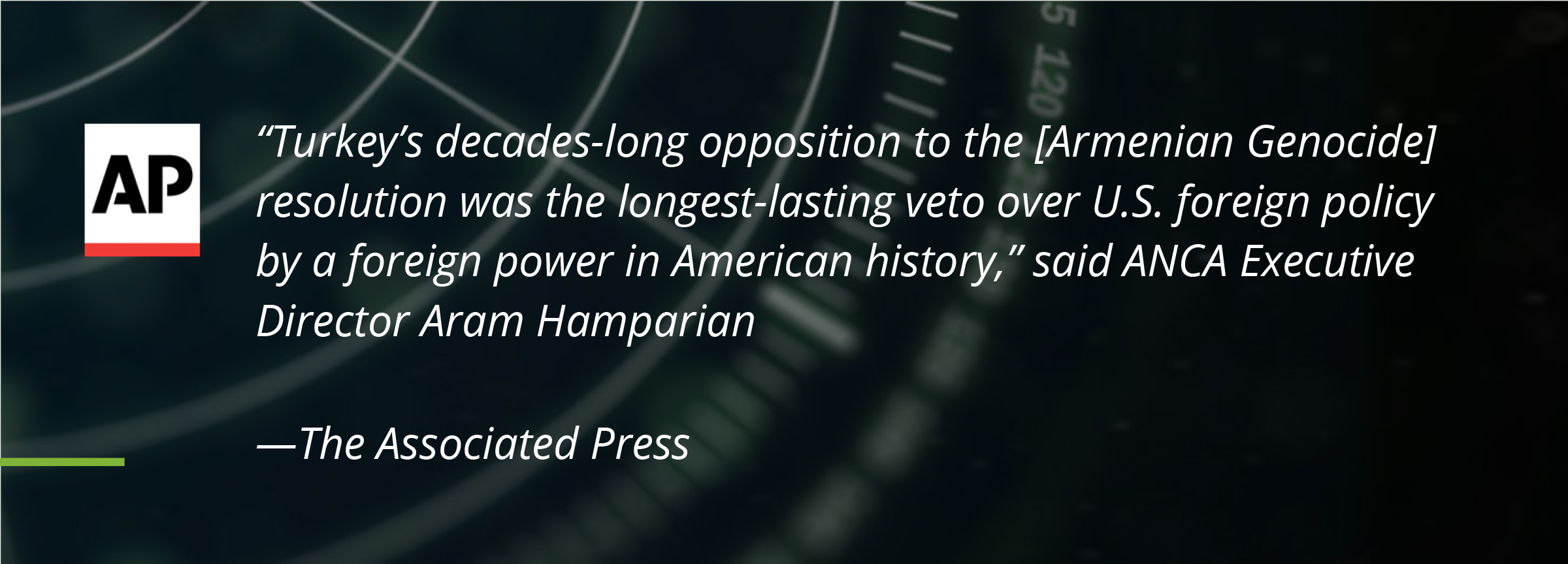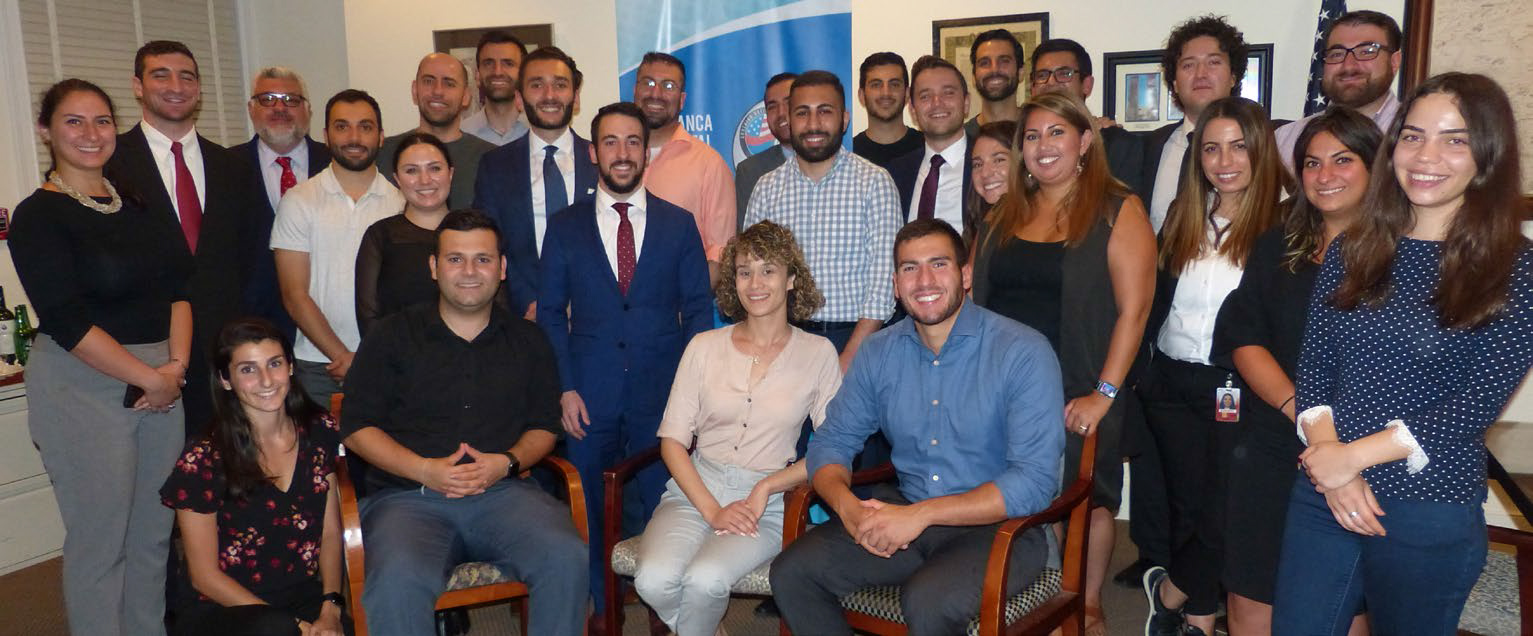U.S. Senate scrutiny of the next U.S. nominee to serve as Ambassador to Azerbaijan.
U.S. state-level recognition of Artsakh, beyond California, Georgia, Hawaii, Louisiana, Massachusetts, Maine, Michigan, and Rhode Island.
RESULTS
Secured passage of the Chu Amendment (2019) endorsing the Royce-Engel peace proposals, calling for the non-deployment of snipers, heavy arms, and new weapons; deployment of additional OSCE monitors, and placement of gunfire-locators along the line-of-contact.
Secured passage of the Sherman Amendment (2019) placing legislative limits on U.S. defense sales or transfers to Azerbaijan that would strengthen Baku’s ability to act upon its stated intention to shoot down civilian aircraft over Artsakh.
Broke down barriers to U.S.-Artsakh ties by encouraging and facilitating bilateral visits (to Washington, DC and Stepanakert) and building bipartisan support for the U.S.-Artsakh Travel and Communication Resolution, H.Res.190.
Supported the success of Capitol Hill events featuring leaders of the Artsakh Republic.
Spearheaded direct U.S. aid to Artsakh in the Fiscal Year 1998 foreign aid bill. The U.S. is the only country that provides direct aid (over $45,000,000) to help Artsakh with maternal health care, clean water, and de-mining.




